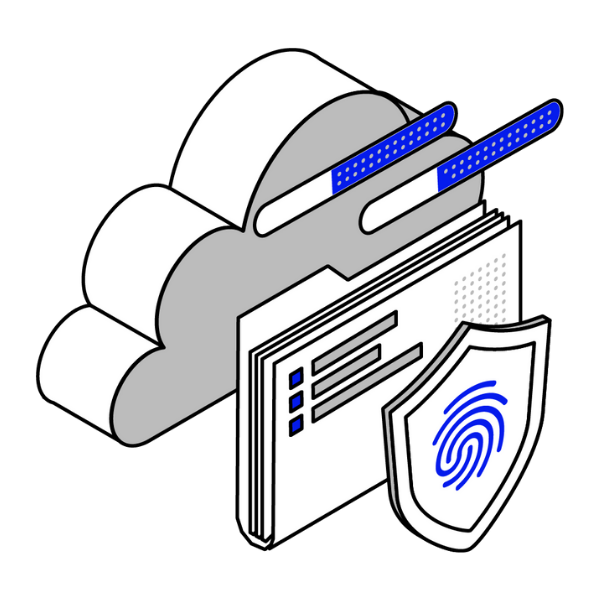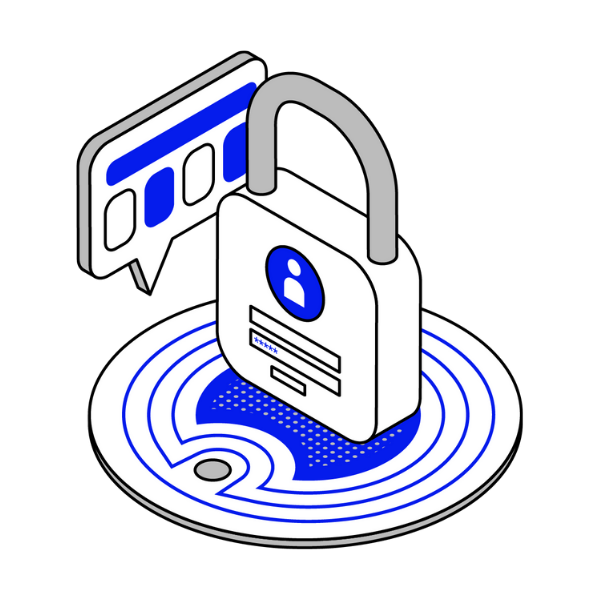HIPAA Compliance: The Foundation of Patient Trust
Stop worrying about $1.5 million fines and devastating breaches. Our 7-layer HIPAA compliance program protects your patients, your practice, and your reputation—so you can focus on providing excellent healthcare instead of navigating complex regulations.

The Small Healthcare Practice HIPAA Challenge
Healthcare organizations now face more cyber threats than any other critical infrastructure sector, yet most small practices lack the resources to defend themselves or achieve compliance. This creates a deadly paradox: the sector with the strictest data protection requirements is also the most vulnerable to attack.
The Impossible Choice:
Small healthcare practices are caught between two devastating financial realities:
Option 1: Risk the Fines and Breach Costs
- Average Healthcare Data Breach: Penalties range from $10,000 per violation to $1.5 million for repeat violations, plus up to 10 years in prison
- Patient trust and reputation damage: Often irreversible
- Business closure risk: 60% of small businesses close within 6 months of a cyberattack
Option 2: Pay for Enterprise-Level Security
- Full-time Compliance Officer: $100,000-150,000 annually
- Chief Information Security Officer: $250,000-350,000 annually
- Security Operations Center: $500,000-10,000,000+
- HIPAA Compliance Consultants: $200-400/hour with no ongoing support
The Reality: Healthcare had more cyberthreats in 2024 than any other critical infrastructure industry. Even more alarming, 92% of healthcare organizations reported experiencing a cyberattack in 2024, up from 88% in 2023, while the average cost of the most expensive attack reached $4.7 million. Most small healthcare practices can't afford either option, leaving them vulnerable to both cyber criminals and regulatory penalties—that’s where we come in.
What is HIPAA and Why It Matters
The Healthcare Insurance Portability and Accountability Act was originally signed into law to "improve the portability and accountability of health insurance coverage" for employees between work. The Privacy and Security rules were signed in shortly after to protect "any information held by a covered entity which concerns health status, the provision of healthcare, or payment that can be linked to an individual".
HIPAA Covers All Healthcare Organizations Including:
- Medical practices and clinics
- Hospitals and health systems
- Pharmacies and drugstores
- Health insurance companies
- Medical billing companies
- Healthcare clearing houses
- Business associates (IT providers, billing services, cloud storage providers)
What is Protected Health Information (PHI)? Protected Health Information (or PHI) is any "individually identifiable health information" held or transmitted by a covered entity or business associate. This can be in any form- electronic, paper or even oral.
HIPAA Identifiers Include:
- Patient names and addresses
- Phone and fax numbers
- Email addresses and IP addresses
- Social Security numbers
- Medical record numbers
- Account numbers and health plan beneficiary numbers
- Biometric identifiers (fingerprints, voice prints)
- Full-face photographs
- Any other unique identifying information
TRINSEC7's 7-Layer HIPAA Compliance Program
Complete HIPAA Protection Across Every Vulnerability
1: People & Training
HIPAA Security Awareness for Healthcare Staff
- Monthly HIPAA Training: Interactive sessions specific to healthcare workflows
- Phishing Simulations: Healthcare-targeted attack scenarios and immediate feedback
- Role-Based Training: Customized training for doctors, nurses, administrators, and support staff
- HIPAA Culture Development: Building privacy-first habits in daily patient care
2: Physical Security
Protecting Patient Information in Physical Spaces
- Access Control Assessment: Securing medical records, workstations, and server areas
- Workstation Security: Proper positioning and access controls for computers with PHI
- Media Controls: Secure handling of backup tapes, hard drives, and mobile devices
- Facility Access Controls: Restricting physical access to areas containing PHI
3: Cyber Security
Advanced Digital Threat Protection
- Managed Security: 24/7 monitoring, real-time threat detection, and active human response.
- Vulnerability Management: Scanning and patching to close security gaps.
- Incident Response Planning: A clear plan and team to respond to and recover from a breach.
- Next-generation Security Tools: Our Security Operations Center leverages the most advanced security tools on the market for prevention.
4: Risk Management & Intelligence
Proactive HIPAA Risk Identification
- Annual HIPAA Risk Assessments: Comprehensive evaluation of all PHI handling
- Vulnerability Management: Regular scanning and remediation of healthcare systems
- Business Associate Risk: Evaluation and monitoring of third-party vendors
- Security Intelligence: Healthcare-specific threat monitoring and analysis
5: HIPAA Leadership & Governance
Executive-Level HIPAA Strategy
- HIPAA Security Officer: Designated leadership for compliance oversight
- Policy Development: Comprehensive HIPAA policies and procedures
- Compliance Program Management: Ongoing maintenance of HIPAA requirements
- Board Reporting: Regular compliance status updates and risk briefings
6: HIPAA Culture & Procedures
Embedding Privacy Into Daily Healthcare Operations
- Minimum Necessary Standard: Ensuring staff access only needed PHI
- Breach Response Procedures: Clear steps for potential HIPAA incidents
- Patient Rights Implementation: Access, amendment, and accounting of disclosures
- Workforce Training Documentation: Maintaining required training records
7: Business Continuity & Resilience
Maintaining Healthcare Operations During Incidents
- HIPAA Incident Response Plan: Specific procedures for healthcare data breaches
- Business Continuity Planning: Maintaining patient care during security incidents
- Disaster Recovery: Backup and recovery procedures for patient records
- Breach Notification Procedures: Notifications must be made without unreasonable delay and no later than 60 days following the discovery of the violation
The Cost of HIPAA Non-Compliance
HIPAA Violation Penalties: For unknowingly violating HIPAA it is $100 per violation, but in the extreme cases covered entities and individuals who violate under false pretenses it is $100,000 fine (up to $1.5 MILLION for repeat violations) and up to 10 years in prison.
Recent Healthcare Breach Examples:
- Change Healthcare (2024): $2.5 billion total cost, 192 million patients affected
- Anthem (2015): $115 million settlement, 78.8 million records breached
- Premera Blue Cross (2015): $74 million settlement, 10.4 million patients affected
Beyond Financial Penalties:
- Loss of patient trust and reputation damage
- Potential closure of practice (60% of breached small businesses close within 6 months)
- Personal liability for owners and executives
- Ongoing regulatory scrutiny and compliance monitoring
HIPAA Compliance Checklist for Small Practices
Administrative Safeguards:
1. Assign HIPAA Security Officer and Privacy Officer
2. Conduct comprehensive risk assessment
3. Develop and implement HIPAA policies and procedures
4. Provide HIPAA training to all workforce members
5. Implement access management and authorization procedures
6. Establish incident response and breach notification procedures
7. Create business associate agreements with vendors
8. Maintain documentation of compliance efforts
Physical Safeguards:
9. Control physical access to facilities and workstations
10. Implement workstation use restrictions and positioning
11. Secure media containing PHI (computers, backup tapes, mobile devices)
12. Control access to electronic media and hardware
Technical Safeguards:
13. Implement access control systems with unique user identification
14. Deploy automatic logoff for unattended systems
15. Encrypt PHI in transit and at rest
16. Implement audit controls and logging
17. Ensure data integrity controls are in place
18. Control data transmission and communication
Case Study: Small Clinic Hit by Ransomware—A True Wake-Up Call
Clinic: Cincinnati Pain Physicians
Size: Small clinic—likely under 200 staff, including physicians, nurses, admin
Attack Vector: Ransomware (Helldown group), confirmed by U.S. Secret Service
Impact: Total system lockdown, severe operational disruption


